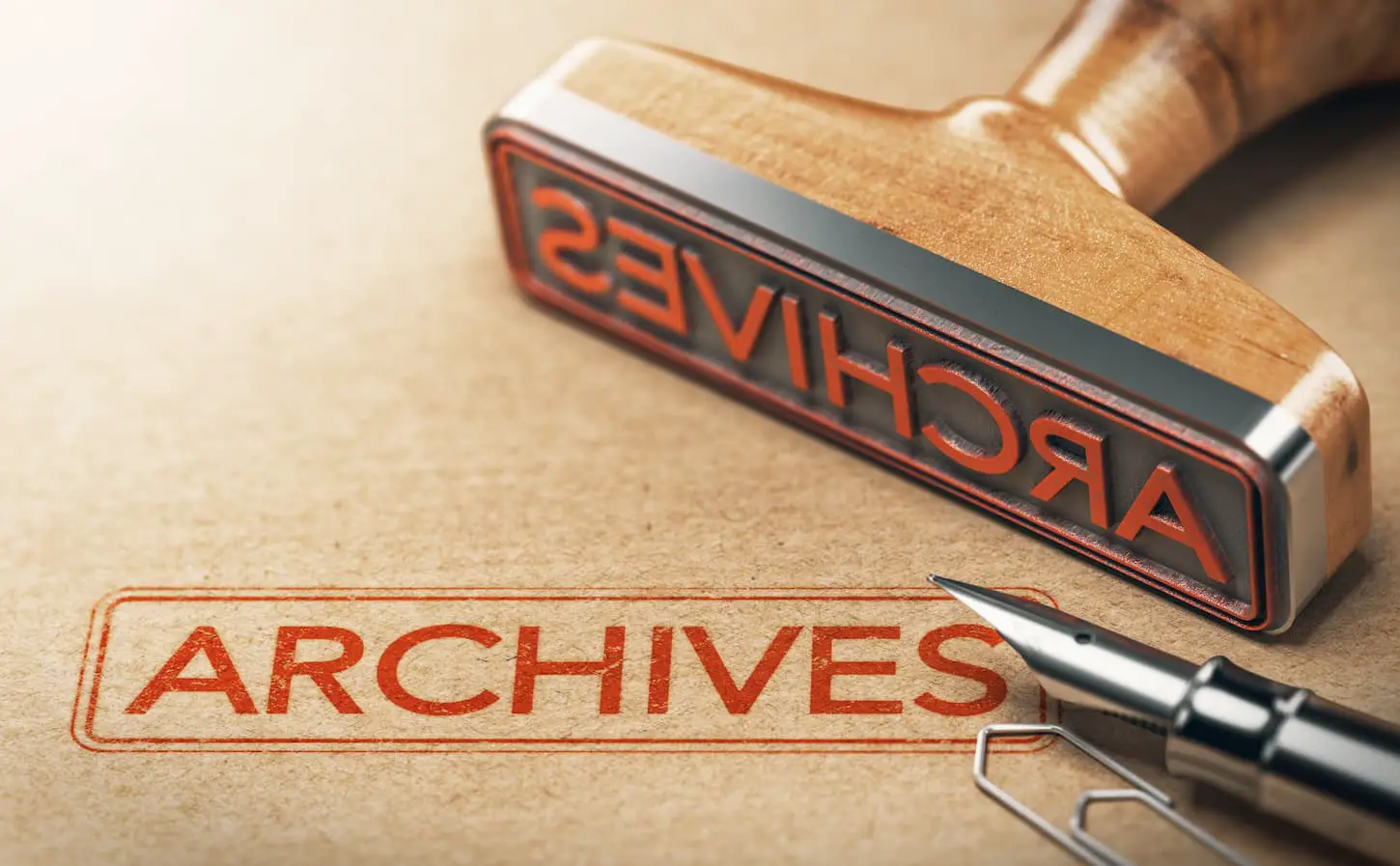If you love researching family history, you might be wondering if it’s worth getting a degree in genealogy. A degree takes a lot of time and financial investment. So before diving into one, you need to know what to expect, and what options there are once qualified.
A degree in Genealogy shows that a person can effectively research and investigate family history, and organize or present all information precisely. With a genealogy degree, an individual can work freelance, for a company, or find work in a related industry such as government archives.
Studying genealogy out of self-interest is one thing, but studying it at a degree level takes a lot of hard work and dedication. If you’re passionate about genealogy and thinking about taking it to the next level, keep reading to find out what you can do with a degree in genealogy.

What’s Genealogy?
Genealogy is a social science with a focus on family history. Someone who likes researching family history is called a genealogist. A genealogist will spend most of their time researching historical archives to discover family origins.
Genealogy is like detective work because to discover someone’s family history, you have to be good at collecting data and conducting thorough research. A genealogist must also be able to present their research in an organized chart or family tree.
People often enlist the help of a genealogist to trace their family’s roots or help find lost relatives. A genealogist can also help find graves, lost legacies, or family links if someone wants to reclaim citizenship.
People study genealogy for all different types of reasons. Some genealogists do it purely for self-interest and to help them create their family tree. Others do it because they want to become a professional or to gain valuable skills to further their current career.
Where Can I Study Genealogy?
Genealogy can be studied online, at workshops, or by enrolling in a college or university course. Anyone can start with some free online courses. To gain a career in genealogy, opt for more formal education.
There’s no end to the things that can be learned about genealogy, and these days, we’re spoiled with the range of resources available. Many people love to learn about genealogy simply for pleasure and self-interest.
Others study genealogy to gain a deeper understanding of the subject and take it further as a career.
If you’re serious about studying genealogy, here are the best places to learn about it as a hobbyist or as a professional.
Learning as a hobbyist
There are many ways to build research skills and genealogy knowledge. Most of the main family archive sites, such as FamilySearch and Ancestry, have lots of site-specific learning resources that can be used to help build your family tree.
A great deal about genealogy can also be learned by listening to podcasts, watching webinars, or going to conferences where you can learn first-hand from professionals.
You’ll also find lots of help, support, and information by joining genealogy societies. The National Genealogy Society or American Ancestors are good places to start. It’s a good idea to join online genealogy groups as well.
Any hobbyist will slowly increase their genealogy skills as they come across challenges related to their family tree. If you want to learn about something specific, like the best way to research military records, for example, there are plenty of free, online courses that relate to that area.
Learning as a professional
Most professional genealogists start as hobbyists, but like most professions, if someone wants to reach the top level, it helps to have formal education on the subject. Many colleges offer courses in family history and research, or you can study genealogy at a degree level at university.
Here’s a list of some universities where you can study genealogy at the degree level:
- National Institute for Genealogical Studies.
- Boston University.
- Brigham Young University.
- University of Strathclyde (Scotland)
- Genealogical Institute on Federal Records.
- Genealogical Research Institute of Pittsburgh (GRIP)
- Institute of Genealogy and Historical Research (IGHR)
- British Institute (BI)
If you want to be a professional genealogist but don’t find a degree appealing, it’s possible to become an accredited and certified genealogist to prove credibility and credentials.
What’s A Certified Genealogist?
A certified genealogist has an approved, accredited institution to verify their high levels of skills and professionalism. To gain certification, a degree is not needed, just proof of skills and past work in a portfolio. A written test may need to be taken for proof of genealogy knowledge.
There are two genealogical accreditation institutions in the USA -The Board for Certification of Genealogists (BCG) and the International Commission for the Accreditation of Professional Genealogists (ICAPgen).
To gain certification or accreditation you need to pass a test, show a portfolio, or proof of the hours you’ve worked as a genealogist. You might have to do all three in some cases.
People with a degree in subjects other than genealogy, such as history, can use genealogy accreditation or certification to improve their employability in the genealogy field.

How Much Does it Cost to Become a Certified Genealogist?
To become a certified genealogist, it must be shown that the person has spent many hours studying and practicing genealogy, so it’s a big-time investment. The certificates also need to be paid for, which will cost between $100 and $600.
The primary application fee for the BCG is $75, and the final application fee is $300. A renewal fee of $300 needs to be paid every five years.
Accreditation from ICAPgen is priced per level. Level 1 includes an initial application fee and is $100, and Levels 2 and 3 are between $100 and $200, with a $50 annual maintenance fee.
Do you need a Degree to be a Genealogist?
An individual doesn’t need a degree to be a genealogist – anyone interested in researching family history is considered a genealogist. However, if someone wants to make a career out of genealogy, one of the fastest ways is through a degree.
A genealogy degree, like most degrees, takes three or four years, and you can do this at a university or through flexible distance learning.
When studying genealogy at a degree level, you will learn problem-solving techniques, all about evidence evaluation, and how to efficiently collect and present data.
What Can You Do With a Genealogy Degree?
With a genealogy degree, a person can be a freelance genealogist or work as an employee for a genealogy company. They can also become a teacher, a lecturer, or find work with the police or government.
The research and investigation skills that are learned by obtaining a genealogy degree can open up many different career opportunities, and we’ve listed a few of them below.
Job #1: Teach
If passionate about genealogy, you’ll have a natural ability to share knowledge, so teaching is a rewarding route to take with a genealogy degree.
With a degree, a person can become a university lecturer or college teacher that specializes in family history. You can also start up your classes, either online or in your local community.
Job #2: Freelance
As a freelance genealogist, you can work your own hours, set the rates, and pick and choose cases and clients. There will also be the freedom to specialize in specific areas of interest.
Job #3: Work for a company
With a degree, you can also work for a genealogy company. There will be an industry-standard salary and regular hours, and you get to deal with many different cases and gain lots of experience.
Job #4: Get a genealogy-related job
With a high level of genealogy education, people can get a job in many industries. Genealogists make fantastic research consultants, librarians, archivists, and authors.
With a degree, it’s possible to become a historic preservationist, a genetic genealogist, an heir searcher, or a citizen reclamation or military repatriation expert.
Want to be like the most amazing paid genealogist of all time while working with an amazing TV show? Relative Race works with or hires genealogists!
What Kind of Degree do you need to be a Genealogist?
There doesn’t need to be any kind of degree to be a genealogist, but if someone wants to become a professional, it’s worth getting a formal education in the subject. A degree in genealogy is the best type to take, but subjects such as history can also help.
A history degree or a degree in anthropology, paleography, or social or library sciences can also pave the way to becoming a professional genealogist.
If there is an area of special interest in genealogy, such as searching in a different country, a degree in the language or history of the country can also help.
Can you Make Money doing Genealogy Without a Degree?
Anyone can make a living from genealogy without a degree. Many professional genealogists are certified without a degree. Ultimately, making money will come down to someone’s skills and experience as a genealogist, but a degree can give a head start to becoming a professional.
A degree shows that you have one of the highest levels of education in the subject, and it instantly makes you more employable. However, a certified genealogist with many years of experience can also land a good job and expect a high-end salary.
What is the Average Salary of a Genealogist?
The average genealogist salary is around $61,000 per year or $29 per hour. However, this can rise and fall depending on things such as experience and whether the person is working freelance or for a professional company.
A highly qualified and experienced genealogist can potentially earn more than $100,000 per year working for themselves or a company. If you’re just starting as a professional genealogist and don’t have certificates or much experience, plan on about $36,000 per year.
Take a look at this table to get a better idea about the average genealogist salary:
| Low Range | Mid-Range | Top Level | |
|---|---|---|---|
| Annual Salary | $36,000 | $61,000 | $101,000 |
| Hourly Rate | $18 | $29 | $49 |
How Do I Start a Career in Genealogy?
The best place to start a career in genealogy is with a personal family tree. When investigating family history, a person can get a good insight into what genealogy is all about. It’s also a good idea for an individual to immerse themselves in genealogy literature, and enroll in some courses.
If you think you’re ready to start a career in genealogy, we’ll show you below exactly how to get there in 8 simple steps.
Step #1: Do your tree
If you haven’t already, start a family tree to get to grips with the basics of genealogy and family research. When doing your own tree, you’ll learn about the research that genealogy entails and also learn about vital genealogy resources.
Step #2: Read and learn
There’s lots of fantastic genealogy literature out there, so make sure to get hold of some genealogy books and subscribe to genealogy magazines. In addition, as well as reading, plan on taking part in introductory genealogy workshops and courses.
Step #3: Become part of the genealogical community
The best way to learn about genealogy is from other genealogists, so make sure to immerse yourself in the genealogical community by joining a professional body or society. There will be plenty of support and nuggets of wisdom from their members.
Step #4: Research your local archives
One of the main things in genealogy is sifting through archives, and the more you do it, the faster and more proficient you become. To improve research skills, invest the time in getting to know the local government or library archives.
Step #5: Volunteer
The best way to learn about genealogy is with hands-on research. If you’ve exhausted the family tree, move on to family and friends. Any experience obtained is invaluable if you want to start a career in genealogy.
Look out for any local community projects that could benefit from some genealogy too, or get in touch with local genealogy societies to find out about voluntary projects.
Step #6: Get certified
To be taken seriously as a professional genealogist, get certified or accredited by the relevant awarding institution. Certification means a level of high professional standards has been met.
Step #7: Get qualified
Formal qualifications are not needed to be a genealogist, but having them can make you more employable. Formal education is one way to guarantee taking genealogy skills to the next level.
Step #8: Learn About Business
If you want to become a freelance genealogist, you need to learn about business. There’s no point in having a high level of education if you can’t get clients in. If you don’t have a business head on your shoulders, take a business course to learn more about how to find clients and how to be your own boss.
What Qualifications Do I Need to be a Genealogist?
There are no formal qualifications needed to be a genealogist. If someone is interested in family history, this makes them a genealogist. One of the things that makes a good genealogist is their vast levels of experience above certificates and qualifications.
A good genealogist must also have fantastic organization skills with a meticulous eye for detail. Patience is a big plus too, along with strong research skills. Previous experience in fields such as history, research, or writing can also help you become a professional genealogist.

Key Takeaways and Next Steps
For those who have a strong interest in genealogy and want to take their skills further, there is a wide range of online resources such as podcasts, webinars, and free lessons to deepen their knowledge. Subscribing to magazines and getting involved in the genealogy community is a good idea as well.
To work as a professional genealogist, it’s a good idea to get some kind of formal education, such as a college certificate or university degree. However, you don’t have to have a degree to be a professional genealogist.
Many genealogists prove their credentials with accreditation from an approved genealogical society such as the Board for Certification of Genealogists or the International Commission for the Accreditation of Professional Genealogists.
Now that you know more about this amazing profession (and really, it’s a life calling!), make sure you read our article Genealogy Education: What You Need and Where to Get it.
Resources
When learning about genealogy, it’s important to learn from various reputable sources. These are the sources used in this article and our research to be more informed as genealogists.
- “Becoming a Professional Genealogist.” National Genealogical Society, 26 Dec. 2020, www.ngsgenealogy.org/free-resources/becoming-a-professional-genealogist.
- “Genealogy Studies Program | Boston University Metropolitan College CPE.” Boston University, cpe.bu.edu/genealogy. Accessed 21 Mar. 2022.
- ICAPGen. “Become Accredited.” ICAPGenSM, 16 Feb. 2022, www.icapgen.org/become-accredited.
- Jrussell. “Application Process.” Board for Certification of Genealogists, bcgcertification.org/process/#:%7E:text=Fees%20for%20applications%20are%20as,%2C%20every%205%20years%3A%20%24300. Accessed 21 Mar. 2022.
- Morton, Sunny Jane. “Premium: 6 Genealogy Jobs That Turn Family History Skills into a Career.” Family Tree Magazine, 28 Dec. 2021, www.familytreemagazine.com/general-genealogy/genealogy-jobs.
- National Genealogical Society, 26 Dec. 2020, www.ngsgenealogy.org/free-resources/becoming-a-professional-genealogist.
- OnlineDegree.com. “Genealogist – Salary, How to Become, Job Description and Best Schools.” OnlineDegree.Com, 4 June 2021, www.onlinedegree.com/careers/behavioral-science/genealogist.
